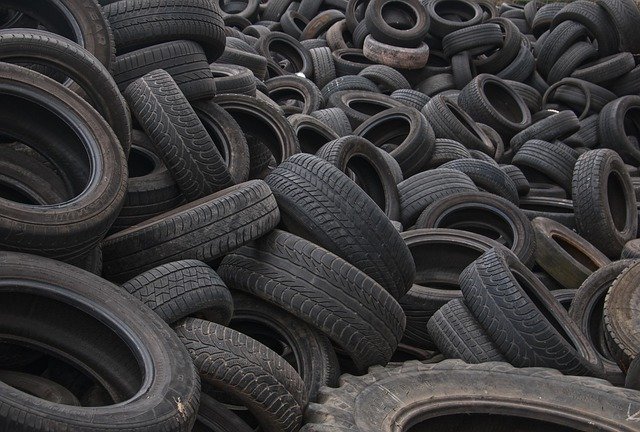Insights into Waste Management Jobs and Career Development in Brazil
Waste management in Brazil offers stable work opportunities focused on practical activities rather than prior experience. This field emphasizes reliability and encompasses various positions within the industry. An overview of different roles, salary levels, and essential skills can provide insight into potential career growth in sustainable waste management solutions.

The waste management industry in Brazil has evolved significantly over recent decades, transforming from basic collection services to comprehensive environmental solutions. This sector encompasses various specialized roles, from municipal waste collection to industrial recycling operations, hazardous material handling, and environmental consulting. As urbanization increases and environmental regulations become more stringent, career opportunities continue expanding across different skill levels and educational backgrounds.
Understanding Employment in Waste Management and Recycling
Employment opportunities in Brazil’s waste management sector span multiple categories, each requiring different qualifications and offering distinct career trajectories. Collection and transportation roles form the foundation of the industry, involving waste collection operators, truck drivers, and route supervisors. These positions typically require basic education and on-the-job training, focusing on safety protocols and equipment operation.
Recycling facilities offer another significant employment avenue, with positions ranging from sorting line workers to quality control specialists and facility managers. These roles often provide entry points for career advancement, as workers can develop specialized knowledge about material processing, contamination identification, and equipment maintenance. Many recycling facilities also employ administrative staff, sales representatives, and logistics coordinators to manage operations and customer relationships.
Treatment and disposal facilities represent more technical employment opportunities, requiring workers with specialized training in environmental processes, chemical handling, and regulatory compliance. These positions often demand higher education levels and professional certifications, particularly for roles involving hazardous waste management or advanced treatment technologies.
Overview of Waste Management Systems
Brazil’s waste management systems operate through interconnected networks involving municipal services, private contractors, and specialized treatment facilities. Municipal waste management typically handles residential and commercial collection, operating through direct municipal services or contracted private companies. These systems require coordination between collection crews, transfer stations, and final disposal facilities.
Industrial waste management operates separately, with specialized companies providing customized solutions for manufacturing, healthcare, and construction sectors. These systems often involve complex logistics, requiring expertise in waste characterization, treatment selection, and regulatory compliance. Career opportunities within industrial waste management frequently offer higher compensation due to specialized knowledge requirements.
Hazardous waste management represents the most regulated segment, requiring extensive training and certification for personnel handling dangerous materials. These systems involve specialized collection, transportation, treatment, and disposal processes, creating employment opportunities for environmental technicians, safety specialists, and regulatory compliance officers.
Skills and Development Requirements for Sector Growth
Successful careers in waste management require diverse skill sets depending on the specific role and advancement goals. Technical skills form the foundation for most positions, including equipment operation, safety protocol adherence, and basic maintenance capabilities. Workers in collection and transportation roles must demonstrate physical fitness, attention to safety, and reliability in demanding work environments.
Supervisory and management positions require additional competencies in team leadership, scheduling, and customer service. These roles often involve coordinating multiple crews, managing equipment maintenance schedules, and ensuring compliance with service contracts. Communication skills become increasingly important as responsibilities expand to include client interactions and regulatory reporting.
Specialized technical roles demand formal education and professional certifications. Environmental engineers, for example, require university degrees and may need professional licensing for certain responsibilities. Laboratory technicians need training in analytical procedures and quality control protocols. Safety specialists must complete certification programs covering hazardous material handling and emergency response procedures.
Continuous learning remains essential throughout waste management careers, as regulations, technologies, and best practices evolve regularly. Many professionals pursue additional certifications, attend industry conferences, and participate in training programs to maintain competitiveness and advancement opportunities.
| Position Category | Experience Level | Typical Monthly Range (BRL) |
|---|---|---|
| Collection Operator | Entry Level | 1,500 - 2,200 |
| Recycling Technician | Mid Level | 2,000 - 3,500 |
| Environmental Specialist | Advanced | 4,000 - 8,000 |
| Facility Manager | Senior | 6,000 - 12,000 |
Prices, rates, or cost estimates mentioned in this article are based on the latest available information but may change over time. Independent research is advised before making financial decisions.
Career advancement in waste management often follows predictable pathways, with entry-level workers progressing through operator, technician, supervisor, and management roles. Many companies provide internal training programs and educational support for promising employees. Professional development opportunities include specialized certifications in areas such as hazardous material handling, environmental compliance, and equipment operation.
The industry’s growth trajectory suggests continued expansion of employment opportunities, particularly in recycling, composting, and waste-to-energy sectors. Environmental regulations continue driving demand for qualified professionals, while technological advances create new specialized positions requiring updated skills and knowledge.
Waste management careers offer stability and growth potential within an essential service sector. As environmental awareness increases and regulatory requirements expand, qualified professionals can expect continued demand for their expertise. The sector provides opportunities for individuals with various educational backgrounds and skill levels, from hands-on operational roles to advanced technical and management positions. Success in this field requires commitment to safety, environmental stewardship, and continuous professional development.




